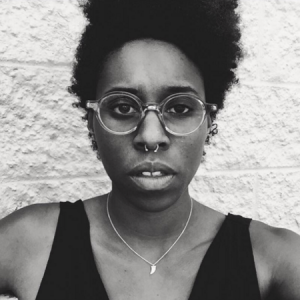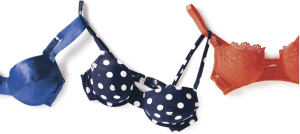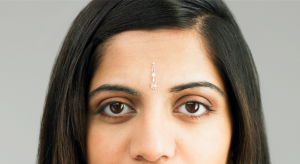
Two people look annoyed, sitting back to back on a couch. Source: Huffington Post
It happens invariably – and innocently enough – the question that makes all feminists cringe because we know that what will follow is a Nice-Guy-Syndrome-Friend-Zone-Arrgh-Wtf rant.
But why do some women go for jerks?
I see you. I see you cringing.
But when I off-handedly tweeted the other day that I was working on this article, something unexpected happened.
I was barraged by an onset of tweets. Men thanked me for taking the question on because they’ve been waiting to get a real answer. And women wrote in to say that they really needed validation on this topic to help explain their own lives and relationships. And suddenly I realized that this article is really actually needed.
So why do some women go for the assholes?
Here’s why: We’re told to.
Now let’s break it down through the lens of something that is familiar to us.
Four Boxes Theory
The Four Boxes of Gendered Sexuality is a theory that we, as feminists, are already familiar with, even if we don’t know it by name. In essence, it’s an expansion of the Virgin/Whore Complex, which posits that women can either be good at womanhood (by being an awesome wife and mother and having a sexuality that is saved for the “right” men) or horrible at it (by being an outspoken, brazen slutty slut-slut).
This accounts for two of Crane and Crane-Seber’s four boxes: The Good Girl – who is subordinate, dependent, and passive – and The Bad Girl – who is independent, educated, and sexually liberated. Embedded in this dichotomy is the idea that it is more socially acceptable to be the former.
But men, too, are forced into boxes. The Tough Guy – aggressive, sexual, restricting, and stoic – is our social ideal. The Sweet Guy – intellectual, emotional, artsy, and cultured – on the other hand, is considered a sort of failed masculinity.
And we’re taught from early on – just like we are with women and femininity – that what society wants in our men is the former, not the latter.
The pressure to represent a sort of gendered perfection is on both women and men. And more importantly (at least, to the aims of this article), it must be noted that these gender ideals are imprinted on all of us.
Boys, while they’re being taught to play with trucks instead of dolls, pick up on the fact that women are supposed to be subservient and quiet. And girls, while trying on Mom’s high heels, learn that men should be domineering and aggressive.
A Crisis in Masculinity
The truth is: We shouldn’t be asking why some women date bad guys (and, to be clear, by “bad guys,” I’m not talking about abusive men; I’m talking about men who subscribe to toxic masculinity). We should go to the root of the problem first.
Because the real question is: Why are men socialized to be assholes? And why does society applaud and encourage that behavior in men, while stifling more enriching and healthy traits like empathy and good communication?
The problem, really, starts with the fact that what’s considered “masculine” in our culture is dominance, aggression, prowess, competition, abuse, restriction, argumentativeness, control, and even violence.
Also known as being an asshole. And in some cases, even abusive.
Men who are able to get in touch with their feelings (geez, and even cry every once in a while!) and be an attentive lover actually make better partners than the hegemonic hyper-masculine male because of that openness and sensitivity.
But we stifle those behaviors early on, the very first time that we utter to them that “boys don’t cry,” and punish our sweet guys by telling them to “man up,” implying that they’re less of a man when they emote or show an interest in humanities.
Thus, the message that we’re getting across (to men and women alike!) is that only domineering men are “real” men – the ones that you want to be or be with.
Opposites Attract
One of the most frustrating problems that comes out of the idea that people are only allowed to be categorized in one of two ways (as “feminine” or “masculine”) is that this BS binary pegs femininity and masculinity as opposites.
And because, culturally, we associate femininity with women and masculinity with men, then we’re also brought up to believe that men and women are different, that we do not share the same traits.
So what do we need in order to achieve balance in our relationships?
Each other.
Which means that who we’re with says something about who we are. Namely, that we are the opposite of whomever we’re dating.
That is, according to this age-old idea that opposites attract, if I am dating a hegemonically masculine man, then I must, in theory, be a hegemonically feminine woman. I’m dating the masculine ideal, so I, in turn, must be the feminine ideal. He’s emotionless and physically strong, and I’m a damsel in distress – just like we’re supposed to be. We both win. And we achieve balance.
So while, on the one hand, women go for alpha-males because we’re socialized to believe that’s what we want, on the other hand, it’s because it says something about who we are. Think of the ideal, All-American image of the football player with the cheerleader. Perfect man + perfect woman = perfect couple. Perfect couple – perfect man = perfect woman.
So Now What?
Well, for starters, it would be great if we could re-conceptualize masculinity. We could also stop adhering to gender boxes altogether.
But since it takes a lot of time, energy, and participation to change culture, here are three things that you can do personally to question and call attention to this:
1. Distinguish between someone who is hegemonically hyper-masculine and someone who is abusive.
It’s kind of like squares and rectangles – someone who is abusive is often adhering to the hegemonic mold, but someone who is “masculine” by social definition is not necessarily dangerous.
If you think that you or someone you know is in an abusive relationship, then please redirect here.
But remember, just because they’re not abusive doesn’t mean they’re good for you.
2. Be careful with the gendered language that you use around children.
They are sponges. They soak up everything that you say. Tell the young boys in your life that it’s okay to cry, and that it’s not okay to act violently.
Even though the outside world is teaching them to adhere to gender roles, you can help them think critically about these messages and develop their own individualized sense of masculinity and humanity.
3. Be cognizant of your relationship choices and actively ask yourself if your partner is what’s best for you.
This goes for everyone, always, all the time. But within the context of this article, don’t accept that a male partner who is withholding emotion, telling you what to do, or unable to manage anger is just “boys being boys.”
Because it’s not. It’s “men being the men that they think they’re supposed to be.” Ask for more. From your partners and from yourself. Men are capable are so much more, even if society says they’re not.
***
I can’t tell you why you’re attracted to the kinds of people that you are. But what I can tell you is that our sense of gender roles and expectations is deeply ingrained.
And it’s worth taking a closer look at. Your happiness and relationships you’re in are worth you taking a closer look.
[do_widget id=”text-101″]
Melissa A. Fabello, Co-Managing Editor of Everyday Feminism, is trained in domestic violence prevention and sexuality education. She is an eating disorder and body image activist and media literacy vlogger based out of Philadelphia. She enjoys rainy days, Jurassic Park, and the occasional Taylor Swift song and can be found on YouTube and Tumblr. She holds a B.S. in English Education from Boston University and an M.Ed. in Human Sexuality from Widener University. She is currently working on her PhD. She can be reached on Twitter @fyeahmfabello. Read her articles here and book her for speaking engagements here.
Search our 3000+ articles!
Read our articles about:
Our online racial justice training
Used by hundreds of universities, non-profits, and businesses.
Click to learn more




















